Descendants — A Washington Post original series
Image: “The Principal Varieties of Mankind,” drawn by British artist John Emslie in the mid-19th century. (Science Museum Group Collection)
(The Washington Post) For many Americans, blended ancestry is an integral part of their identity. The mosaic of hyphenated heritages preserves cultural connections beyond the United States, lineages that build pride and a sense of belonging. But for Americans descended from enslaved Africans, the roots of their ancestry are often a mystery. Family trees go dark after five or six generations, a reminder that 150 years ago, black people weren’t considered people.
Genealogists refer to this as “the brick wall,” an obstruction in African American lineage that dates to 1870 when the federal Census began recording African descendants — 250 years after they were first hauled in chains to what would become the United States.
Before then, their lives existed on paper only as another person’s property. To penetrate the brick wall, black Americans frequently must rely on the names of their ancestors’ owners.
“You can find them through [their owners’] tax records, estate records, slave schedules and wills,” said Mary Elliott, the “Slavery and Freedom” curator for the National Museum of African American History and Culture.
Even after abolition, the black experience has fallen victim to campaigns that obscure the darkest parts of the American story, diminishing African Americans’ connections to their pasts and warping the collective memory of the nation’s history.
But in recent years, black Americans have pursued new efforts to uncover their stories. From exploring sunken vessels of the Middle Passage to reconstructing museum exhibits that chronicle slavery, African Americans are breaking down the barriers that separate them from their ancestors and reconnecting with a lineage once lost. (more)
151 years later, Fort Bend residents push to honor county’s first black sheriff with street name
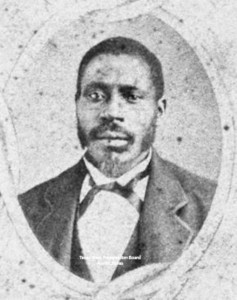
Walter Burton served as Fort Bend County’s first black sheriff and later as a state senator. (Photo: Fort Bend ISD)
(Houston Chronicle) When Walter Moses Burton arrived in Fort Bend County in 1860, he was a slave. His owner taught him how to read and write.
The reading and writing lessons would pay off.
In 1869, a few years after the Civil War ended and slaves were freed, Burton was elected the first African-American sheriff in Fort Bend. He went on to serve four terms as a state senator, representing Fort Bend, Waller, Wharton and Austin counties.
During Reconstruction, African-Americans for the first time were granted the right to vote and seek public office. Newly freed slaves outnumbered whites in many southern counties, setting the stage for Burton and other blacks to get elected.
Now Fort Bend, a county of more than 765,000 residents, is one of the most diverse in the country. Voters recently elected the county’s first Asian county judge and first black district attorney. Still, street names and markers paying homage to shameful episodes of history dot the county. A street in a Missouri City neighborhood, for example, is named after the first Grand Wizard of the Ku Klux Klan.
Residents are seeking to change who is recognized on one neighborhood’s streets. A group of African-American men are seeking to rename two streets in the New Territory subdivision that now honor plantation owners who took part in the state’s notorious convict leasing system. One of the streets would be named after Burton. (more)
Save the date, call for presentations! 2020 Aya Symposium at PVAMU
K-12 Texas educators attending the event will receive 7 CPE credits!
 Following on the success of last year’s event, the 2020 Aya Symposium, in association with the Texas Purple Hull Pea Festival, is set for Friday, June 5, at Prairie View A&M University. As last year, the event will be hosted by the Texas Institute for the Preservation of History and Culture located in the School of Architecture.
Following on the success of last year’s event, the 2020 Aya Symposium, in association with the Texas Purple Hull Pea Festival, is set for Friday, June 5, at Prairie View A&M University. As last year, the event will be hosted by the Texas Institute for the Preservation of History and Culture located in the School of Architecture.
This year’s theme is: “Making Us Count: Reclaiming the Texas Freedom Colony Legacies of Activism and Engagement in 2020.”
“Being counted” in 2020 – both on the census roles and in the voting booth – is of generational import. This year’s symposium will guide attendees in exploring the role of Texas freedom colonies – throughout history, and into the present – in “Making Us Count” through, protesting, educating, voting, and other methods of community organizing and civic engagement to insure that the voices of Black Texans are heard.
Call for Presentations
We are looking for dynamic and engaging speakers who have the expertise to enlighten and motivate attendees. For submission guidelines, symposium registration, and other information, please click here. Proposals are due Friday, March 27 and selected presenters will be notified no later than Friday, April 17, 2020.
Apply to the Preservation Scholars Program
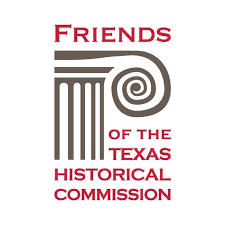 The Friends of the Texas Historical Commission’s Preservation Scholars Program offers students from underrepresented ethnic and cultural backgrounds, as well as those from non-traditional academic backgrounds, exposure to the wide variety of degrees and specializations applicable to historic preservation. Working with Texas Historical Commission (THC) staff, Preservation Scholars gain experience in the fields of architecture, archaeology, economic development, downtown revitalization, heritage tourism, and more.
The Friends of the Texas Historical Commission’s Preservation Scholars Program offers students from underrepresented ethnic and cultural backgrounds, as well as those from non-traditional academic backgrounds, exposure to the wide variety of degrees and specializations applicable to historic preservation. Working with Texas Historical Commission (THC) staff, Preservation Scholars gain experience in the fields of architecture, archaeology, economic development, downtown revitalization, heritage tourism, and more.
The application period for summer 2020 is now open! The application deadline is March 27, 2020.
Our goal is to increase the diversity of professionals working in field of historic preservation, which will allow us to better acknowledge and tell the full and authentic stories of the variety of cultures that enrich Texas’ heritage and engage a wider range of communities in supporting preservation efforts. A program of the Friends of the Texas Historical Commission, students are placed for an 8-week internship with the Texas Historical Commission (THC). Students work under the supervision of THC staff at the agency’s headquarters in Austin and/or in the field with THC historic sites, at an associated preservation organization such as a Main Street program, with a heritage tourism program, or at a history museum or association. Over the course of the internship, students complete a project of their choosing and are given the opportunity to spend time with staff in each of the THC’s divisions. Brief progress reports are required, both during the employment period and at the conclusion of the internship. The Friends of the Texas Historical Commission also requires a final presentation to its Board of Trustees during the summer board meeting. The internship offers a $5,000 stipend provided by the Friends of the Texas Historical Commission.
Click here for more information and to apply.
TIPHC Bookshelf
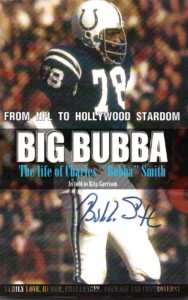 Published scholarship on black history in Texas is growing and we’d like to share with you some suggested readings, both current and past, from some of the preeminent history scholars in Texas and beyond. We invite you to take a look at our bookshelf page – including a featured selection – and check back as the list grows. A different selection will be featured each week. We welcome suggestions and reviews. This week, we offer, “Big Bubba: The Life of Charles “Bubba” Smith,” by Rita Garrison.
Published scholarship on black history in Texas is growing and we’d like to share with you some suggested readings, both current and past, from some of the preeminent history scholars in Texas and beyond. We invite you to take a look at our bookshelf page – including a featured selection – and check back as the list grows. A different selection will be featured each week. We welcome suggestions and reviews. This week, we offer, “Big Bubba: The Life of Charles “Bubba” Smith,” by Rita Garrison.
“Everything’s Bigger in Texas!” That saying held true when Charles “Bubba”Smith was born in a little town outside Beaumont and grew to be 6’8”, 300 pounds with the physique of a gladiator. “Big Bubba” contains the colorful, candid memoirs of Bubba Smith’s life, the life of a man who reached super-stardom as an NFL legend and then went on to enjoy a prolific career in commercials, TV, and movies — most notably as the endearing giant of a police cadet, Moses Hightower, in the successful Police Academy movies. From humble beginnings, he grew up under the strict guidance of his football coach father and his loving mother, a woman who went from chopping cotton to earning a doctorate. “Big Bubba” runs the gamut of emotions from jaw-dropping shock to laugh-out-loud humor and heart-warming stories involving family, friends, and other players and actors. These memoirs, told in his later years, reveal stories and details Bubba had never before revealed, since he said he wanted to “Put it all out on Front Street,” one of Bubba’s favorite expressions. You might be shocked, you may laugh or cry, but you will certainly be entertained by these memories of a man who lived his life on a level above most of us.
This Week in Texas Black History
Feb. 24
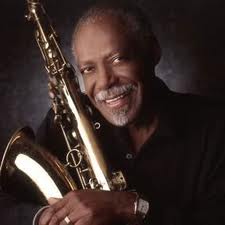
On this day in 1933, jazz saxophonist David “Fathead” Newman was born in Corsicana. Newman grew up in Dallas, graduating from Lincoln High School, then studying theology and music at Jarvis Christian College. For 12 years, beginning in 1954, he was a member of the Ray Charles Band and became the group’s lead tenor soloist. He also played with Herbie Mann, Aretha Franklin, Hank Crawford, Aaron Neville, and Austin’s Kenny Dorham. In 2005, Newman’s album, “I Remember Brother Ray,” was the most played jazz album in the nation.
Feb. 26
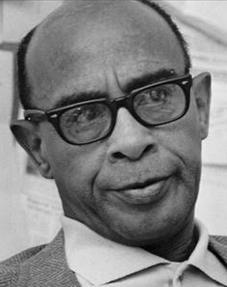
Heman Sweatt, accompanied by a delegation from the NAACP, met with University of Texas president Theophilus S. Painter and other university officials on this day in 1946 to present a formal request for Sweatt’s admission to the UT law school. The legal case resulting from this request, Sweatt v. Painter, became a landmark civil rights decision, one of several that struck down the doctrine of “separate but equal” educational facilities. Sweatt finally registered at the school on September 19, 1950.
Feb. 27
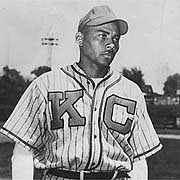
Negro Leagues pitcher Hilton Smith was born on this day in 1907 in Giddings. He played baseball at Prairie View A&M College and then, in 1931 with the Austin Black Senators and in 1932 the Monroe (La.) Monarchs. In 1937, he joined the Kansas City Monarchs, of the newly formed Negro American League and played there until 1948. With Kansas City, he frequently came on in relief of the great Satchel Paige. Smith was named to six consecutive East-West All-star Games (’37-42) and won 20 or more games in each of his 12 seasons with Kansas City, including a 93-11 record over a four-year span (’39-42). He was inducted into the Baseball Hall of Fame in 2001. Buck O’Neil, his teammate and close friend said of him, “From 1940 to 1946, Hilton Smith might have been the greatest pitcher in the world.”
Feb. 28
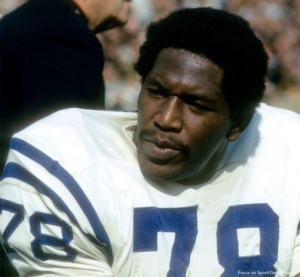
On this date in 1945, All-Pro defensive end Charles “Bubba” Smith was born in Orange, Texas. Smith played for his father, Willie Ray Smith, at Beaumont Charlton-Pollard HS and attended Michigan State University where he was a two-time All-American defensive end. Smith was the first pick of the 1967 NFL draft by the Baltimore Colts, and was a member of their Super Bowl V winning team. During his nine-year career, he also played with the Oakland Raiders and the Houston Oilers. After football, Smith became an actor, most noted for his roles in six “Police Academy” films. In 1988, he was inducted to the College Football Hall of Fame.
Blog: Ron Goodwin, Ph.D., author, PVAMU history professor
Ron Goodwin is an assistant professor of history at Prairie View A&M University. Even though he was a military “brat,” he still considers San Antonio home. Like his father and brother, Ron joined the U.S. Air Force and while enlisted received his undergraduate degree from Texas Lutheran University in Seguin, Texas. After his honorable discharge, he completed graduate degrees from Texas Southern University. Goodwin’s book, Blacks in Houston, is a pictorial history of Houston’s black community. His most recent book, Remembering the Days of Sorrow, examines the institution of slavery in Texas from the perspective of the New Deal’s Slave Narratives.
Recent Posts
November 2020
So, impeachment has come and gone. Bernie Sanders is still a democratic socialist and no one will let Michael Bloomberg forget “stop and frisk.” The political season is in full bloom and for the next ten months or so we’re going to be inundated with political punditry and opinions about what will happen if…(more)]
Worried?
I have a confession. I’m a worrier. But I don’t worry if the Dallas Cowboys or the Houston Texans will make the playoffs, I worry about my family’s health and well being. Right now I’m especially worried about my mother and one of my brothers-in-law. Both are dealing with issues that I pray daily about. And I know I’m not supposed to worry, the Good Book teaches that if the Provider takes care of the…(more)
Submissions wanted
Historians, scholars, students, lend us your…writings. Help us produce the most comprehensive documentation ever undertaken for the African American experience in Texas. We encourage you to contribute items about people, places, events, issues, politics/legislation, sports, entertainment, religion, etc., as general entries or essays. Our documentation is wide-ranging and diverse, and you may research and write about the subject of your interest or, to start, please consult our list of suggested biographical entries and see submission guidelines. However, all topics must be approved by TIPHC editors before beginning your research/writing.
We welcome your questions or comments. Please contact Michael Hurd, Director of TIPHC, at mdhurd@pvamu.edu.
